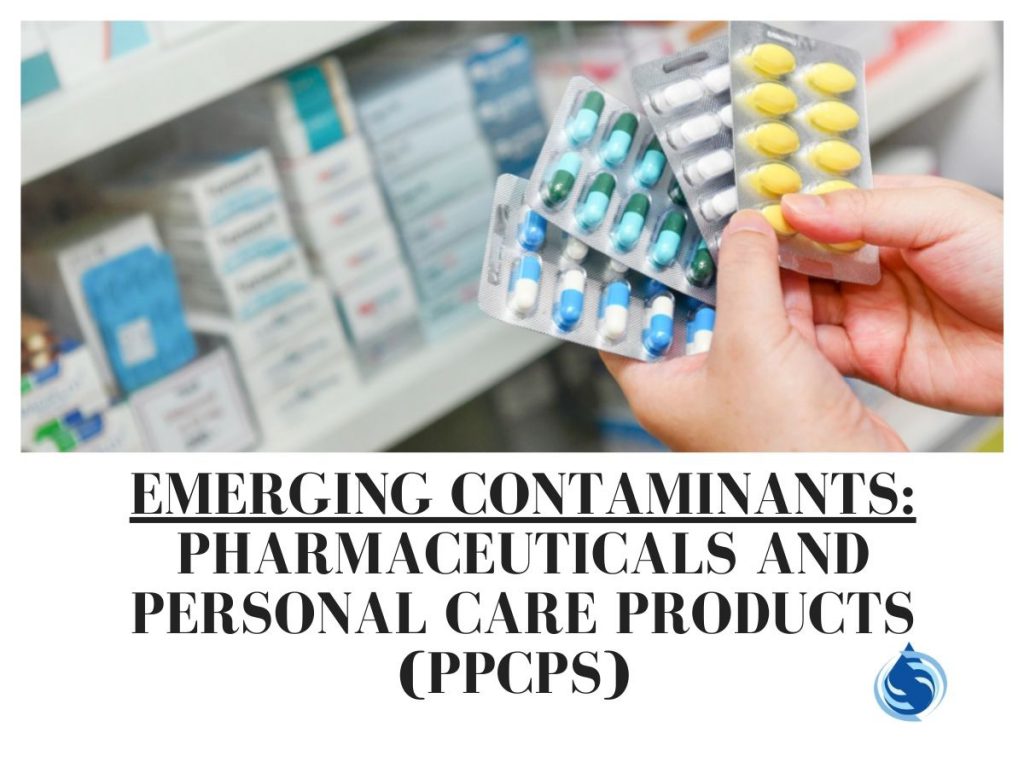
What are pharmaceuticals and personal care products (PPCPs)?
The Groundwater Foundation says pharmaceuticals and personal care products (PPCPs) are a diverse group of chemicals including:
- all human and veterinary drugs
- dietary supplements
- topical agents such as cosmetics and sunscreens
- laundry and cleaning products
- fragrances and all the “inert” ingredients that are part of these products
Are PPCPs an Emerging Contaminant?
The U.S. Geological Survey conducted a breakthrough study in 1999 of surface and groundwater samples from around the U.S. to check for the presence of materials such as pharmaceuticals, antibiotics, steroids, hormones, and other compounds. At least one chemical was detected at low levels in 80% of streams and 93% of groundwater sampled. Low levels of steroids, nonprescription drugs, and insect repellents were the chemical groups most frequently detected.
It is not yet known what the affects of PPCPs have on humans, scientists and researchers are still in the early stages of their studies. It has been noted that there are less male fish than expected in streams tested for PPCPs as well as male fish with female reproductive organs.
How Do PPCPs Get into the Groundwater?
The Groundwater Foundation tells us that PPCPs enter the environment and become contaminants in several ways:
• Excretion by humans and domestic animals – All the components of each pharmaceutical and over-the-counter medication aren’t fully metabolized by humans and animals, and the unmetabolized portions of these compounds are excreted from the body as waste.
• Disposal of unneeded or expired PPCPs by flushing them down a toilet or drain – Some experts recommend flushing as a safe method of PPCP disposal. Flushing does prevent accidental ingestion, but can cause eventual pollution of ground and surface water.
• Bathing and swimming – Compounds from products such as cosmetics, lotions and sunscreen enter surface water bodies through direct contact.
• Discharge from municipal sewage systems or private septic systems. Municipal wastewater treatment plants generally don’t treat for the compounds found in PPCPs, so they are present in treated wastewater and discharged into surface water bodies. Septic system owners need to be especially careful about not flushing PPCPs down the toilet or drain – some PPCPs can disrupt the processes in a septic system, posing a risk of groundwater contamination from PPCP compounds and fecal matter.
What is a good way to dispose PPCPs?
It is a good habit to NEVER flush pharmaceuticals down the toilet, especially if you are on a septic system. If you can, it is best to find a take back program. In Indiana use the Department of Justice finder or Safe.pharmacy to find a safe place to dispose of old or unused drugs near you. If there is no location near you, alter the medication by mixing with something to alter the medication. The Groundwater Foundation suggest kitty litter or flour for liquid medications or glue/water for pills.
For personal care products, consider using products that have environmentally friendly ingredients for residue that may be left over in the container.
